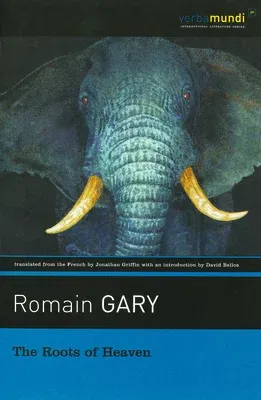The Roots of Heaven takes as its subject the deliberate and relentless
hunting and killing of elephants for their ivory. Morel, a former
dentist whose survival in a Nazi concentration camp he attributes to his
fixation on the freedom and companionability of elephants, travels to
Africa intent on stopping the slaughter. He circulates a petition
demanding their killing be made illegal. It attracts two signers: a
disgraced American from the Korean War and a call girl described as just
another animal who needed protection. From here things get really
interesting--politically, socially and culturally. Morel realizes that
action is necessary; a notorious elephant hunter is shot in the
buttocks, while a female trophy hunter is stripped naked and publicly
whipped. You never teach a man anything by killing him, he observes, On
the contrary you make him forget everything. He gains a following--some
drawn by his cause, some by political expediency, some by a need to
believe in something, anything, bigger than themselves. He is chased and
cornered at Lake Kuru, where a vast assemblage of elephants has
converged to drink, and where this novel concludes in a brilliant and
memorable climax.
In 1956 this book exploded into the world. A huge bestseller in France,
it won the country's most prestigious award, the Prix Goncourt. In the
U.S. it was an immediate bestseller.

